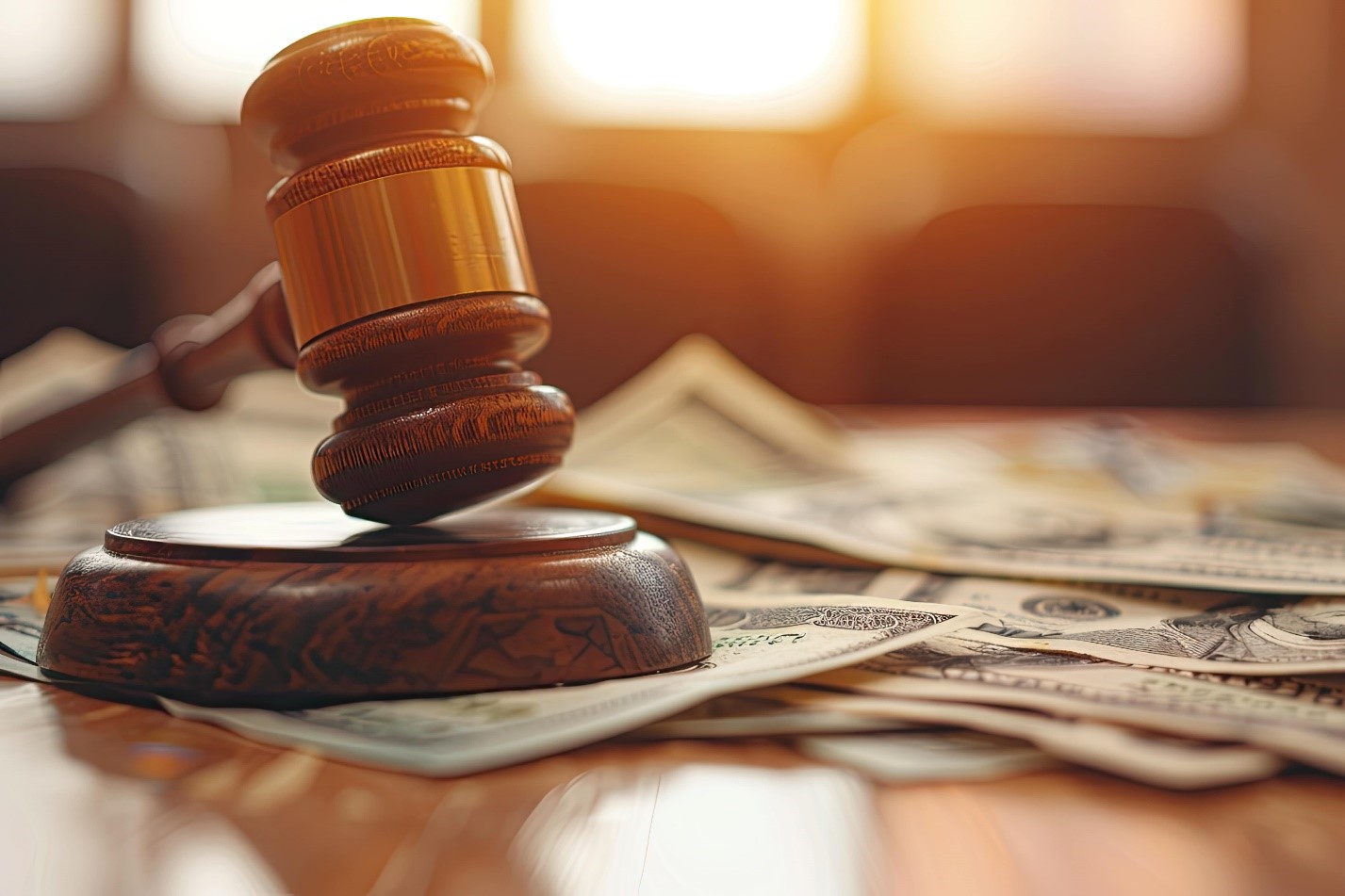Leonard Keith Hill is Managing Partner and Lead Trial Attorney at Hill & Associates, responsible for the recovery of over $250 million in verdicts and settlements. Leonard is also a proud member of the American Association for Justice and the Philadelphia Trial Lawyers Association. In the high-stakes world of courtroom battles, few topics ignite as much debate as the economics of large verdicts. In the following article, Leonard Hill dives into this contentious arena, shedding light on the complex interplay between costs, compensation, and the overall legal system.
Large verdicts are not just isolated events; they dramatically shape insurance policies, corporate behavior, and the broader socio-economic environment. These hefty financial decisions often compel companies to rethink their risk management strategies and insurance premiums, leading to significant shifts in operational practices. For corporations, the ripple effects can include heightened caution in product development, more stringent compliance measures, and an overarching focus on minimizing legal liabilities. On a broader scale, these verdicts influence legislative reforms and public perception of the legal system, reinforcing the critical balance between fair compensation and economic sustainability.
Leonard Keith Hill Explains the Impact on the Legal System
Substantial legal payouts often make headlines, capturing public attention and sparking calls for legal reform. These verdicts act as powerful deterrents, sending a clear message to entities about the severe repercussions of negligence or misconduct. Designed to serve justice and provide compensation for the damages incurred, these significant awards also foster a culture of litigation. Leonard Hill underscores the appeal of substantial payouts, drawing in potential plaintiffs and lawyers alike, and reshaping the contours of the legal arena. This not only influences the broader legal landscape but also propels the relentless pursuit of justice through the halls of the courts.
Moreover, the impact on the courts is multifaceted. On one hand, substantial legal awards can drive businesses to settle disputes out of court, aiming to avoid the risk of a crippling verdict. On the other hand, the prospect of hefty payouts entices more claims, potentially overwhelming the court system with cases that might be better suited for
alternative dispute resolution methods. This dual effect highlights the delicate balance between encouraging fair compensation and maintaining an efficient judicial process.

 Economic Costs and Compensation
Economic Costs and Compensation
The economic ripple effects of substantial legal awards extend far beyond the immediate parties in a lawsuit. For defendants, particularly businesses, these verdicts can impose considerable financial strain. Leonard Keith Hill explains that the immediate costs encompass not just the verdict amount but also hefty legal fees and soaring liability insurance premiums. While a single large verdict might not cripple a major corporation, a succession of such awards can inflict severe damage.
For plaintiffs, substantial verdicts often translate into significant compensation for damages, covering medical expenses, lost income, pain and suffering, and
punitive damages designed to penalize the defendant and deter future misconduct. This compensation is crucial for alleviating the financial burdens experienced by those wronged. However, the payout process can be lengthy, with
appeals and negotiations potentially delaying the receipt of funds. This complex financial landscape underscores the profound impact of large verdicts on both sides of the courtroom.
Insurance Policies
One of the most profound impacts of substantial legal awards is felt within the insurance industry. Following large payouts, insurers often hike premiums for liability insurance, affecting a wide array of businesses. Companies at higher risk of litigation may experience skyrocketing insurance costs, which can subsequently lead to increased prices for consumers. In sectors like healthcare, the fear of massive malpractice suits has given rise to "
defensive medicine," where medical professionals order additional tests and procedures primarily to avoid potential litigation, rather than out of medical necessity.
Additionally, insurers may tighten their underwriting criteria, making it more challenging for small businesses and startups to secure adequate coverage. Leonard Keith Hill highlights how this shift can stifle innovation, as new enterprises might find it too risky or prohibitively expensive to enter certain markets. This dynamic underscores the far-reaching consequences of large verdicts on the broader economic landscape.
Influence on Business Practices
In anticipation of substantial verdicts, companies may significantly alter their business practices, yielding both positive and negative outcomes. On the positive side, Leonard Hill notes that the threat of large financial penalties can motivate companies to improve safety standards, enhance quality control, and adopt more ethical business practices. For instance, litigation has prompted many businesses to become more vigilant in areas such as environmental compliance, workplace safety, and consumer protection.
Conversely, Hill points out that the fear of legal action can lead companies to withdraw from certain markets or discontinue products, potentially reducing consumer choice and stifling competition. Companies might also offset the increased costs associated with liability insurance and litigation risks by raising prices for goods and services, ultimately passing these costs onto consumers. This dual impact underscores the complex influence of large verdicts on business strategies and market dynamics.
 Broader Socio-Economic Implications
Broader Socio-Economic Implications
The socio-economic ramifications of substantial legal verdicts reach far beyond the litigants, often prompting shifts in legislation and public policy as lawmakers respond to societal demands for justice and fairness. This response can result in stricter regulations and increased oversight, thereby enhancing corporate accountability. However, these measures also impose additional costs on businesses, which are frequently passed on to consumers.
Leonard Keith Hill emphasizes that large verdicts can have a profound psychological effect on the public, heightening awareness of legal rights and protections, and empowering individuals to seek justice. For businesses, the looming threat of significant verdicts encourages a more cautious and diligent approach to risk management. This dynamic highlights the broader impact of large verdicts on both regulatory landscapes and public consciousness.
Conclusion
Navigating the intricate terrain of substantial legal verdicts requires a keen understanding of the complex interplay between law, business, insurance, and societal norms. Leonard Hill touched on the pivotal role these awards play in shaping corporate behavior, insurance practices, and public policy above. While they fulfill vital functions within the legal system by compensating victims and deterring misconduct, they also wield significant influence over the economic landscape, prompting a delicate balancing act for legal systems, businesses, and policymakers alike.
As we forge ahead, the challenge lies in crafting legal and regulatory frameworks that uphold individual rights while fostering environments conducive to business innovation and growth. Leonard Hill emphasizes the importance of striking this balance, recognizing the dynamic interplay between justice and pragmatism. By comprehending these intricacies, stakeholders can navigate the complexities of substantial legal awards, paving the way for a more equitable and prosperous future for all.
In essence, the economics of large verdicts embody a multifaceted exchange between fairness and practicality, leaving an indelible mark on legal, business, and socio-economic landscapes. Through nuanced understanding and strategic action, we can harness the transformative potential of substantial legal awards, steering towards a future where justice and prosperity intersect harmoniously.

 Economic Costs and Compensation
Economic Costs and Compensation Broader Socio-Economic Implications
Broader Socio-Economic Implications